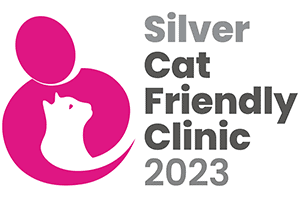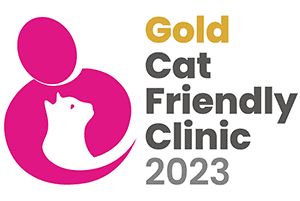Get to know the people behind the job role as we speak to some of our team about their roles working here at Cromwell.
Registered Veterinary Nurse Phoebe has been working at Cromwell’s since 2016.
Q: How long have you been a veterinary nurse?
A: I have been a registered veterinary nurse for 10 months – I qualified in July 2020 and was a student veterinary nurse for three years.
Q: What is the most rewarding thing about this career choice?
A: I love being faced with challenges every day, and for me, nursing a poorly patient and seeing them improve back to wellness is such an amazing feeling. Every single day you will make a difference to an animal’s life.
Q: What’s the best thing about working at Cromwell Vet Group?
A: CVG is like one big family. I am so proud to be a part of such an incredible and hardworking team. Working throughout the pandemic has been extremely challenging, however the teamwork within CVG has been without a doubt amazing.
Q: What does an average day involve for a veterinary nurse at your practice? What type of treatments and care does this include?
A: This can vary depending on what area of the practice you are working in. There is theatre, where RVNs spend the day monitoring anaesthetics for surgical procedures. There are day patients, which involves health checking patients that are coming in for the day for a surgical procedure, placing catheters, taking jugular blood samples, administering premeditations and recovering patients from anaesthetics.
There are inpatients, which involves caring for the poorly animals. This includes two hourly ward rounds where vitals are monitored, administering medications, placing intravenous catheters, cleaning patients, carrying out assisted feeding, walking patients, administering intravenous fluids and providing TLC.
There is also a clinic nurse, which involves educating clients about parasite control, neutering, vaccinations, socialisation, weight management, microchipping, specialised renal clinics, and carrying out post-operative checks.
Within CVG, we also have a prep nurse, who works alongside the theatre nurses by preparing the operating theatres for use. This includes leak testing the anaesthetic circuits, cleaning down the theatre, clipping and scrubbing the surgical site, sterilising and autoclaving surgical equipment and assisting the veterinary surgeon in surgery.
We also have a lab nurse, who is in charge of running in-house blood samples, blood smears, urinary examination, and preparing samples for external analysis.
An average day at CVG, whatever area you are working within, is BUSY. There is rarely a ‘quiet’ day at CVG. It is fast paced, however, is a really enjoyable environment to work within. Everyone in the team always brings their smiley faces to work, and the support between colleagues is amazing.
Q: How has your role progressed within the practice/with Linnaeus?
A: I first began my journey within CVG in 2017 as a student veterinary nurse. I carried out 2000 hours of placement, and applied for a full-time position as an RVN in July 2020. Within the last year, I have carried out a BSc Honours top-up degree in veterinary nursing science whilst working part time at Cromwell’s. From June this year once I have completed my studies, I will return to a full-time role as an RVN, and plan to support student veterinary nurses within their training to becoming RVNs.
Q: How has your role changed during the pandemic?
A: It has been challenging as an RVN during the pandemic, especially when it comes to providing empathy to pet owners in difficult situations such as euthanasia and building a rapport with clients during nurse consultations.
At the beginning of the first lockdown, we were only able to see emergencies and really poorly patients, which was particularly difficult and did have an impact on our emotions.
Over the last year, we have been unable to run nursing clinics as usual, and have adjusted a new way of carrying out a consultation. This has been challenging for both us and the clients as we have lost the social interaction and it often feels quite impersonal.
Q: What single most important thing has helped you through these challenging times?
A: That every day we are making a difference to an animal’s life.




